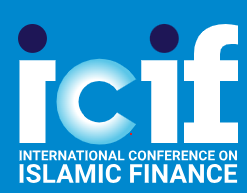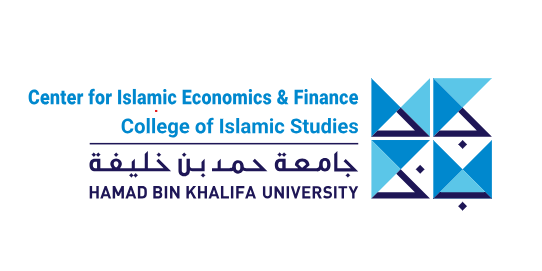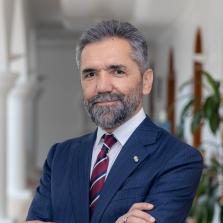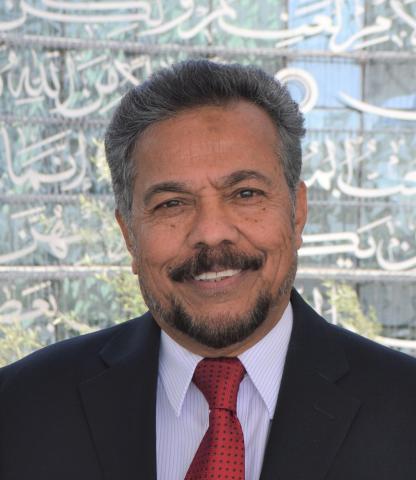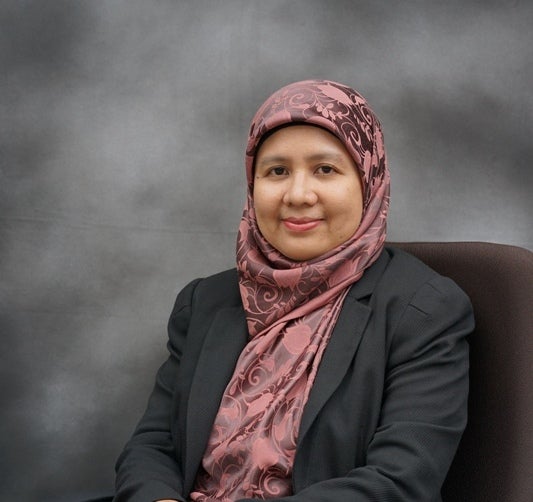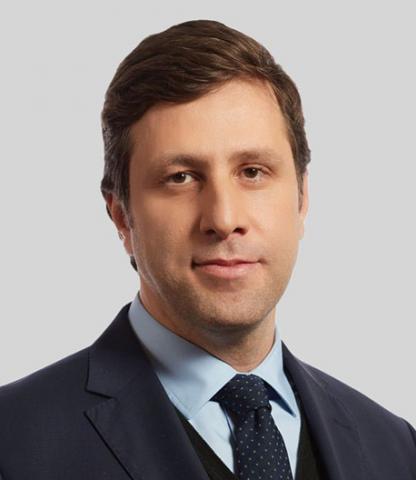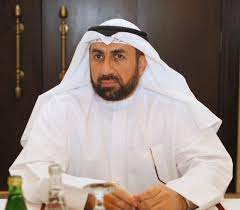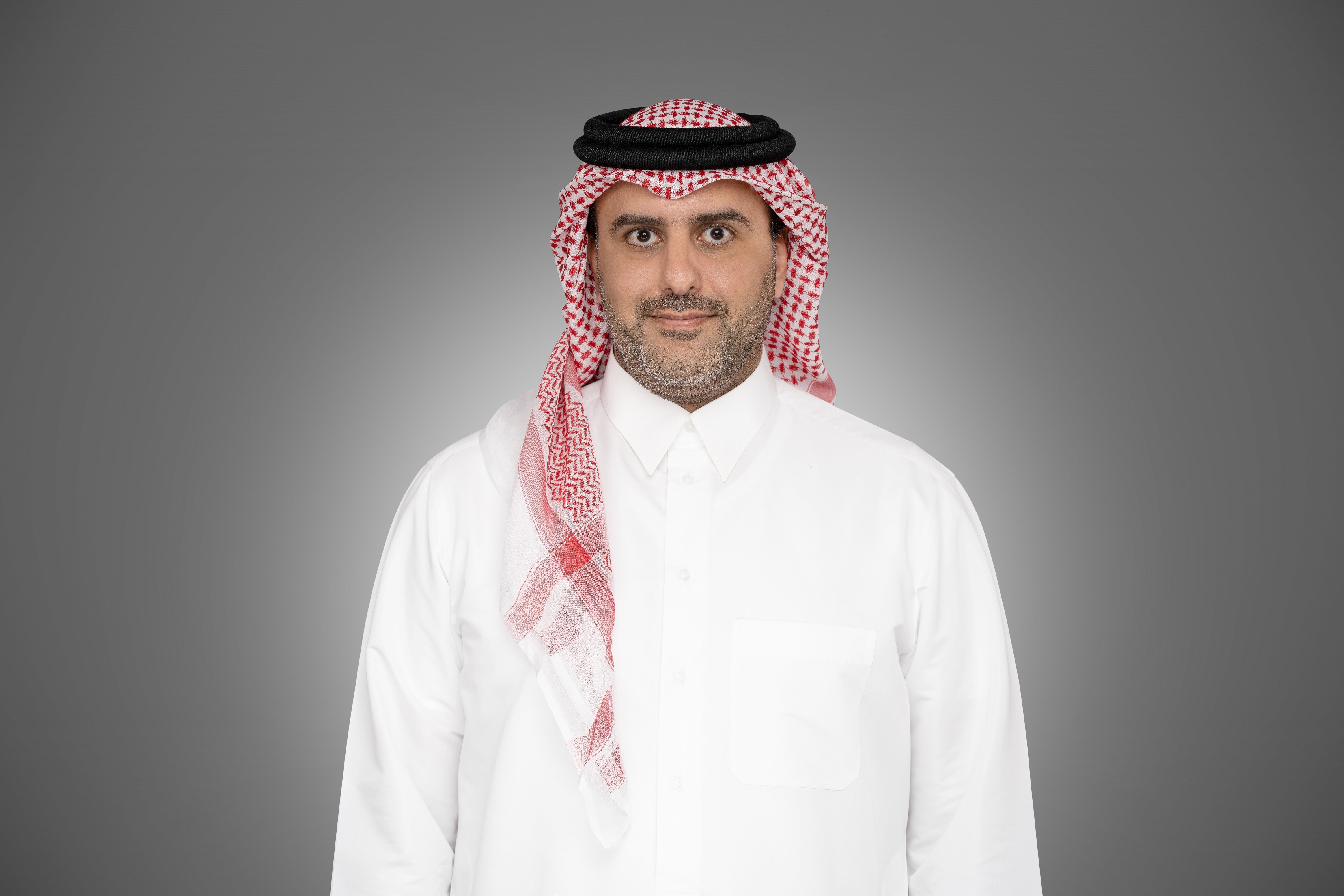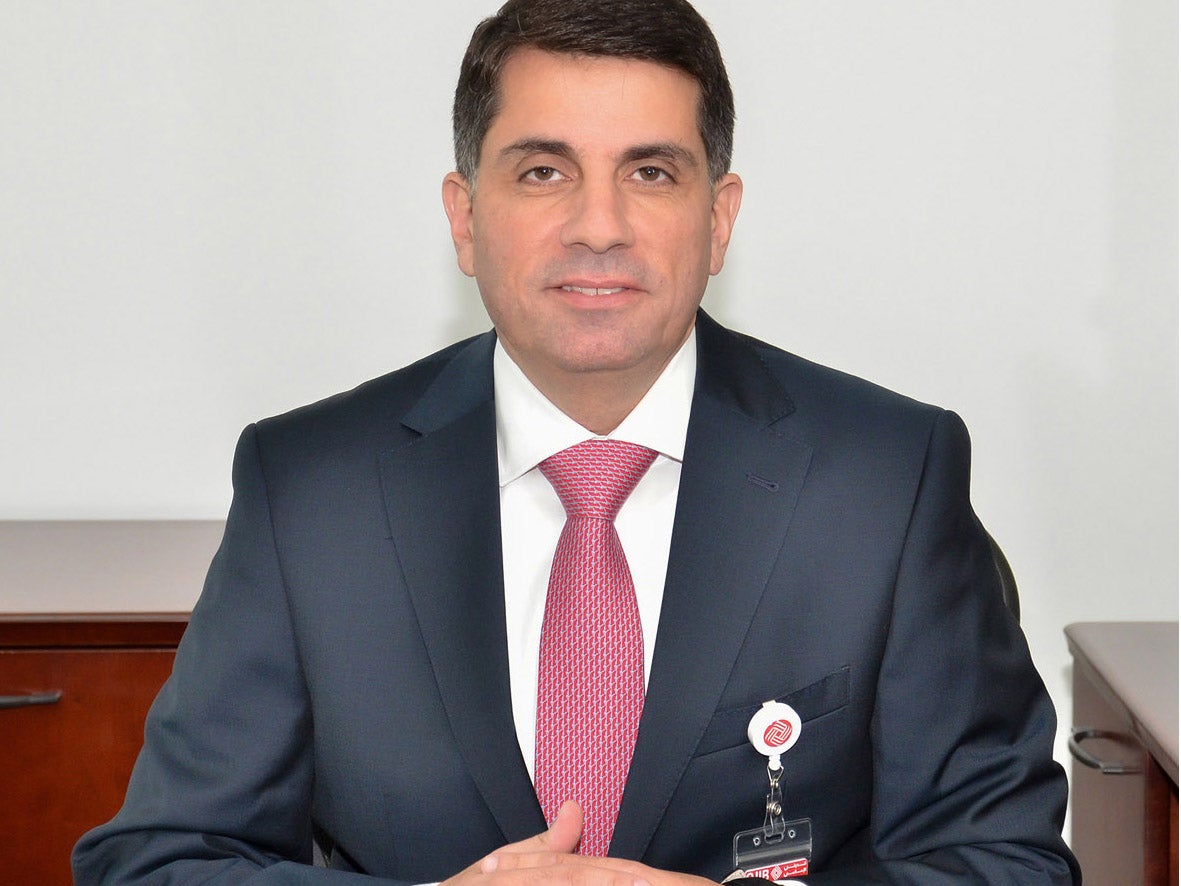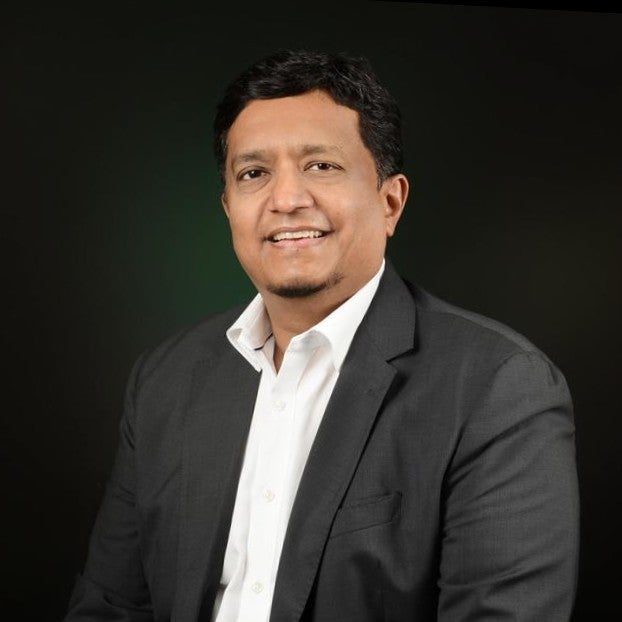Framing The Next Decade of Islamic Economy and Finance
Linking Values and Impact in the Era of Digitalization
Overview:
Following the four successful editions of the International Conference on Islamic Finance (ICIF), the Center for Islamic Economics and Finance (CIEF) at the College of Islamic Studies (CIS), at Hamad Bin Khalifa University (HBKU), with the support of the Qatar Financial Centre (QFC) Authority, is organizing the fifth ICIF, scheduled to be held on October 09 - 10, 2022 in Doha, Qatar.
The forthcoming ICIF 2022 aims to provide a platform for high-level dialogues and discussions between academics, researchers, students, industry leaders, practitioners, and policymakers to frame the next decade of Islamic finance and economy, concentrating on linking values and impact in the era of digitalization.
Chair’s Welcome Message:
Welcome to the 5th International Conference on Islamic Finance.
Dear Colleagues and Guests,
On behalf of the organizing committee and the College of Islamic Studies (CIS), Hamad Bin Khalifa University (HBKU), the organizing institution, it is my great pleasure to welcome you to the 5th International Conference on Islamic Finance.
This year’s hybrid conference will gather the local and international community in the Islamic finance and economy discipline to discuss the next decade of Islamic finance and economy, concentrating on linking values and impact in the era of digitalization. We hope this conference will inspire participants to initiate collaborations within and across various disciplines for the advancement of the topic, and further contribute to the development of Qatar as a knowledge-based economy.
We thank the staff, keynote speakers, contributing authors, and our sponsor, Qatar Financial Centre (QFC) Authority, for helping us to make this conference possible. The organizing committee will do its best to make sure that your participation will be a rewarding experience.
Dr. Syed Nazim Ali
On behalf of ICIF 2022 Committee
Director of Research Division | Center of Islamic Economics and Finance
College of Islamic Studies, Hamad Bin Khalifa University
Sponsored by |
Organized by |
||
 |
|||
About Organizer
About Hamad Bin Khalifa University
Hamad Bin Khalifa University (HBKU), a member of Qatar Foundation for Education, Science, and Community Development (QF), was founded in 2010 to continue fulfilling QF’s vision of unlocking human potential. HBKU is a homegrown research and graduate studies university that acts as a catalyst for positive transformation in Qatar and the region while having a global impact.
Located within Education City, HBKU seeks to provide unparalleled opportunities where inquiry and discovery are integral to teaching and learning at all levels utilizing a multidisciplinary approach across all focus areas.
HBKU is committed to actively contribute to achieving the Qatar National Vision 2030 by building and cultivating human capacity through an enriching academic experience and an innovative research ecosystem. Through applying creativity to knowledge, students will have the opportunity to discover innovative solutions that are locally relevant and have a global impact.
At HBKU– our students, faculty, staff, partners, and leadership – all share a common belief in the power of higher education and research to make a positive impact in the development of nations.
More information at www.hbku.edu.qa
About The College Of Islamic Studies
HBKU’s College of Islamic Studies (CIS) was founded to become a beacon for contemporary Islamic scholarship and thought, and a platform for meaningful intellectual and cultural dialogue on Islam and Muslims. Through its six academic offerings and research centers, the college seeks to address some of the most pressing questions facing Muslim communities today, both locally and globally. Through its offerings, the college strives to advance a better understanding of Islam and its social dimensions and to produce graduates who can contribute and excel in a rapidly changing world.
About The Center For Islamic Economics And Finance
The Center for Islamic Economics and Finance (CIEF) is one of the research arms of the College of Islamic Studies, at Hamad Bin Khalifa University, Doha, that is dedicated to the study of relationships between Islamic faith and economic phenomena and the effect on the behavior of individuals, institutions, and markets by broadly examining Islamic perspectives on production, redistribution and exchange through an interdisciplinary approach. Over the years, CIEF has organized several conferences, namely:
- 8th International Conference on Islamic Economics and Finance (December 2011, Qatar)
- 9th International Conference on Islamic Economics and Finance (9 – 10 September 2013, Istanbul, Türkiye)
- 10th International Conference on Islamic Economics and Finance (23 – 24 March 2015, Qatar)
- Harvard University Muslim Alumni Islamic Finance Conference (14 – 15 October 2016, Cambridge, Massachusetts, USA)
- Harvard University Muslim Alumni Islamic Finance Conference (26 – 27 October 2018, Cambridge, Massachusetts, USA)
- CIS-QFC Global Conference on Awqaf (4-6 December 2018, Qatar)
- 3rd International Conference on Islamic Finance (ICIF 2020) (5 – 6 February 2020, Qatar)
- 4th International Conference on Islamic Finance (ICIF 2021) (4 – 6 April 2021, Virtual Conference)
About Education City
Our flagship initiative is a campus of more than 12 square kilometers that hosts branch campuses of some of the world's leading educational institutes, a homegrown university, and other research, scholastic, and community centers. Together, these institutes make Education City a unique model of academic and research excellence, pioneering a new approach to multidisciplinary, global education and enabling breakthroughs that benefit Qatar and the rest of the world.
Total Students Across Our Universities and Schools: 8,000+
Universities Located in Education City: 9
Schools As Part of Our Pre-University Education Network: 11
More information at https://www.qf.org.qa/education/education-city
About Qatar
Qatar has been an independent sovereign state since 1971. Qatar comprises an 11,500 sq. km peninsula extending northwards into the Arabian Gulf. It has 563 km of uninterrupted coastline.
The country’s population stands at 2.69 million and its capital city is Doha.
Local time is GMT/UCT + 3 hours. There are no daylight savings adjustments.
Qatar has a desert climate with year-round sunshine, very hot summers and mild winters. Mean monthly temperatures range from 17°C in January to 36°C in July, sometimes reaching highs of 40°C+ during the summer. Rain is infrequent, falling in brief showers mainly in winter.
Capital: Doha
Population: 2.6 million
Area: 11,500 sq. km
Language: Arabic
Religion: Islam
Currency: Riyal
Power Connection: The power plugs and sockets are of type D and G. The standard voltage is 240 V and the standard frequency is 50 Hz.
More information at https://www.visitqatar.qa
Conference Scope
Islamic finance has seen significant growth in recent decades and has remained resilient since the start of the pandemic, with assets expected to grow by 10.6% in 2020, according to S&P Global Ratings. Moreover, it is forecasted that the global Islamic finance industry will grow by 10–12% annually, with its total global asset value reaching USD 3.69 trillion by 2024. In addition, Islamic FinTech has emerged as the fastest-growing financial technology segment in the Organization of Islamic Cooperation (OIC) member countries. Despite the exponential growth, the full potential of Islamic FinTech is yet and still far from being realized. It is reported that Islamic FinTech contributed USD 49 billion worth of transaction volumes in OIC countries in 2020, representing only 0.7% of the global FinTech transactions (Global Islamic FinTech report, 2021).
Digitalization offers Islamic finance and economy (IFE) great growth opportunities, both in market value and in socio-economic impact. From the start of the new decade, Islamic finance has significantly evolved from simply providing shari’a-compliant alternatives. Today, Islamic finance also offers shari’a-compliant bespoke products to customers worldwide with an increased focus on environmental, social, and governance (ESG) factors combined with the integration of emerging technology solutions such as blockchain, smart contracts, and artificial intelligence (AI).
While the aforementioned emerging technology brings enormous opportunities, it also comes with a caveat of unwanted consequences. This includes unethical use of technology, unequal growth, an increase in social gaps, pollution, the depletion of natural resources, and many more. Nevertheless, technology is morally neutral and will only remain a tool. Their design principles and how well humans utilize them determine the impacts and outcomes. Therefore, it is vital for IFE to ensure it adopts and embraces the emerging technology with God-Consciousness and operationalizes Islamic virtues in the design principles and frameworks.
Most importantly, IFE requires a robust "vision" that can guide the Islamic finance industry for the next decade and provide the necessary strategies and structure for a strong future. Also, it should develop a maqasid-centric "vision" that is sustainable and respectfully works with the biosphere, not against it, and a pre-eminent "vision" that upholds the inquisitive and virtuous spirit of all golden ages, especially the Islamic golden era.
With this background, the 5th International Conference on Islamic Finance aims to:
- Address contemporary and emerging concerns faced by all facets of the Islamic finance and economy.
- Provide a direction for the Islamic finance and economy to adopt and integrate emerging technological tools and advancements for offering innovative products and solutions.
- Analyze various facets within the ecosystem of Islamic finance and economy their contribution towards SDG agenda, taking cognizance to fulfill the Maqasid al-Shari’a.
- Promote research topics that are aligned with QF, HBKU, and CIS-HBKU research pillars and disseminate them through reputable scholarly publications.
The two-day conference will provide a platform for high-level dialogues and discussions between academics, researchers, students, industry leaders, practitioners, and policymakers to frame the next decade of Islamic finance and economy, concentrating on linking values and impact in the era of digitalization.
Papers presented at the past four conferences have been published in the form of edited volumes by Edinburgh University Press, Taylor & Francis (Routledge), and Springer-Nature.
Conference dates: October 9 - 10, 2022
Agenda
CONFERENCE AGENDA
October 9, 2022
REGISTRATION
OPENING REMARKS
BREAK
SESSION 1
FRAMING THE NEXT DECADE OF ISLAMIC ECONOMY AND FINANCE: VISION, POLICY, AND ETHICAL FOUNDATIONS
Crypto Assets as Property (Mal): Islamic Legal and Ethical Foundations and Evaluative Framework
Al-Iqtisad Al-Wasati: A Finance Vision for the Ummah
Scarcity or Abundance: Why Having So Much Means Too Little – Islamic Economics and the Search for Its Epistemology
Social Footprint of Monetary Policy: A Conceptual Framework and Preliminary Evidence
Do Regulatory Sandboxes Help Achieve the Goals (Maqasid) of Al-Shari'a Better – Case of the Islamic Fintech Sector
ZUHR PRAYER AND LUNCH BREAK
SESSION 2
NEXUS OF TECHNOLOGY ADVANCEMENT AND ISLAMIC FINANCE: EMERGING SHARI’A ISSUES
The Theory of Money: An Analysis of Crypto Currency in a Faith-Based Finance Paradigm
Financial Applications of Artificial Intelligence: Shari’a Issues and Maqasid Considerations
Islamic Crypto Asset: Model Structure, Operational Mechanisms and Shari’a Review
Crypto Staking from the Shari’a Perspective
Non-Fungible Tokens (NFTs) from the Perspective of Fiqh and Maqasid
ASR PRAYER BREAK
SESSION 3
LINKING VALUE AND IMPACT THROUGH DIGITAL SOLUTIONS
Financing the Social Infrastructure: The Case for Inclusive Digital Islamic Financial Solutions
Digital Islamic Social Finance in Indonesia: An Intergenerational Analysis
Digital Financial Inclusion and the Islamic Financial Industry: Current Status and Future Challenges
A Critical Appraisal of Sovereign Green Islamic Bond: Case Study in Indonesia
Gig/Platform Economy: The Next Big Opportunity for Takaful?
END OF DAY 1
October 10, 2022
REGISTRATION
OPENING REMARKS
SESSION 4
DE-CENTRALIZED FINANCE: PROSPECTS AND CHALLENGES FOR ISLAMIC ECONOMY AND FINANCE
AN EMPIRICAL EVALUATION OF BLOCKCHAIN TECHNOLOGY: CHALLENGES AND OPPORTUNITIES FOR ISLAMIC CRYPTO ASSETS
DECENTRALIZED ISLAMIC FINANCE: THE BLOCKCHAIN AS A CURE TO THE MURABAHA SYNDROME
ISLAMIC COMPLIANT FRAMEWORKS FOR THE METAVERSE – AN OPPORTUNITY FOR MORE EQUITABLE FINANCE IN THE METAVERSE
HOW ISLAMIC ARE THE SERVICES OFFERED BY ISLAMIC P2P FINANCING FINTECH COMPANIES? AN OBSERVATION FROM INDONESIA
CENTRAL BANK DIGITAL CURRENCIES, INTERNET OF THINGS, AND BLOCKCHAIN: PROSPECTS AND CHALLENGES FOR ISLAMIC FINANCE
ASR PRAYER BREAK
SESSION 5
IMPACT OF COMPLIANCE ON ISLAMIC ECONOMY AND FINANCE
Religiosity Compliance Impact and Theological Risk: Evidence from Bursa Malaysia
Islamic Banks Journey Towards Digitalization: Requirements and Regulations – Case Study of Islamic Digital Banks
Corporate Governance and Performance of Conventional and Islamic Financial Institutions in Pakistan: Does Good Quality Institutional Environment Matter?
Should Islamic Banks Implement the Same Strategy to Attract Customers?
A Comparative Analysis between Millennials and Generation Z
Revisiting Local Religiosity and its Impact to Risk-Taking Behavior in Dual Banking System
END OF CONFERENCE
Abstracts
Call for Papers
Theoretical and empirical research papers in Arabic or English that contribute to genuine knowledge creation are invited for submission to the conference in the following and related areas, subject to any conditions described in this announcement:
- Islamic economy in the era of digitalization.
- Shari’a compliance objectives and values for the digital economy.
- Maqasid al-Shari’a perspectives for Islamic finance governance structure, reporting standards, and financial and investment products.
- Potential and realities of AI for Islamic finance.
- Metaverse prospects and issues for Islamic economy and finance.
- Islamic finance use cases for blockchain (public and private), non-fungible tokens (NFTs) and crypto currency.
- Islamic finance perspective on cryptocurrency staking, liquidity mining, and yield farming.
- Shari’a compliance/governance concerns and solutions on Decentralized Financial (DeFi) Platform and Decentralized Autonomous Organization (DAO).
- Islamic AI ethics and governance framework that address transparency, accountability, and fairness challenges in Islamic economy and finance.
- Financial inclusion and digital Islamic social finance (Zakat, Awqaf, Crowdfunding, P2P, etc.)
- Innovative, impactful, and sustainable Islamic finance solutions (net–carbon sukuk, ESG cum Islamic finance and investment products, etc.)
- Digital halal economy and Technopreneurship
- Islamic finance Impact of digitalization in Muslim communities.
- Sociological and anthropological perspectives of digital transformations in Muslim communities.
- FinTech, InsurTech, RegTech, digitalization and democratization of Financial Services
Papers beyond these domains that address the broader challenges and upcoming areas of Islamic Finance and Economy are also encouraged and welcomed.
Paper Submission Guidelines
- There is no submission fee.
- Full paper in Arabic or English should be submitted by July 17, 2022 at:
- Arabic paper: https://cief.wufoo.com/forms/icif-2022-arabic-submission/
- English paper: https://cief.wufoo.com/forms/icif-2022/
- Length: Not less than 7,000 words; Font: Times New Roman, size 12, 1.0 line spacing (single-spaced); Margin: A4 paper size, 1 inch or 2.5cm
- Author(s) names, affiliation, correspondence address, and email address should be provided in the title page.
- Between three to six key words should be mentioned by the author(s).
- Tables and figures should be placed in their appropriate location in the paper.
- References should follow APA format.
Publication Opportunity
Selected papers of high quality will be offered the opportunity to have their manuscript published by a reputable publishing house in the form of an edited book.
Important Dates
Extended Deadline
Full paper submission: July 17, 2022
Notification of acceptance: August 18, 2022
Conference dates: October 09 - 11, 2022
Submission platform:
Arabic paper: https://cief.wufoo.com/forms/icif-2022-arabic-submission/
English paper: https://cief.wufoo.com/forms/icif-2022/
International Conference on Islamic Finance 2021
Implications for Islamic Finance and Economy in Post Pandemic Era
Overview:
Following the three successful editions of the International Conferenceon Islamic Finance (ICIF), the Center for Islamic Economics and Finance (CIEF) at the College of Islamic Studies (CIS), at Hamad Bin Khalifa University (HBKU), with the support of the Qatar Financial Centre (QFC) Authority, is organizing the fourth ICIF, scheduled to be held on April 4 - 6, 2021 in Doha, Qatar.
The forthcoming ICIF 2021 aims to probe the barriers and opportunities for sustainable economic development under the “new normal”, characterized by the digital economy and Fourth Industrial Revolution, in the context of Islamic finance and economy.
Chair’s Welcome Message:
Welcome to the International Conference of Islamic Finance 2021!
Dear Colleagues and Guests,
On behalf of the organizing committee and the College of Islamic Studies (CIS), Hamad Bin Khalifa University (HBKU), the organizing institution, it is my great pleasure to welcome you to the International Conference on Islamic Finance 2021.
This year’s virtual conference will gather the local and international community in the field to discuss the emerging sustainable economic development under the “new normal”, characterized by the digital economy and Fourth Industrial Revolution, in the context of Islamic finance and economy. We hope this conference will inspire participants to initiate collaborations within and across various disciplines for the advancement of the topic, and further contribute to the development of Qatar as a knowledge-based economy.
We thank the staff, keynote speakers, contributing authors, and our sponsor, Qatar Financial Centre Authority (QFC), for helping us to make this conference possible. The organizing committee will do its best to make sure that your participation will be a rewarding and pleasurable experience.
Dr. Syed Nazim Ali
On behalf of ICIF 2021 Committee
Director of Research Division | Center of Islamic Economics and Finance
CIS, HBKU
Sponsors |
Organizer |
||
 |
 |
International Conference on Islamic Finance
Circular Economy: Towards Impactful, Sustainable and Value-Based Intermediation
Welcome to the International Conference of Islamic Finance 2020!
Dear Colleagues and Guests,
On behalf of the organizing committee and the College of Islamic Studies, at Hamad Bin Khalifa University, the hosting institution, it is my great pleasure to welcome you to the International Conference on Islamic Finance 2020, here in Doha, Qatar.
This year’s conference will gather the local and international community in the field to discuss the emerging concern of sustainability and climate change risk for financial institutions. We hope this conference will inspire participants to initiate collaborations within and across various disciplines for the advancement of the topic, and further contribute to the development of Qatar as a knowledge-based economy.
We thank the staff, keynote speakers, contributing authors and our sponsor, Qatar Financial Centre Authority, for helping us to make this conference possible. The organizing committee will do its best to make sure that your participation will be a rewarding and pleasurable experience.
Dr. Syed Nazim Ali
On behalf of ICIF 2020 Committee
Director of Research Division | Center of Islamic Economics and Finance
College of Islamic Studies, Hamad Bin Khalifa University
Sponsors |
Organizer |
||
 |
 |



